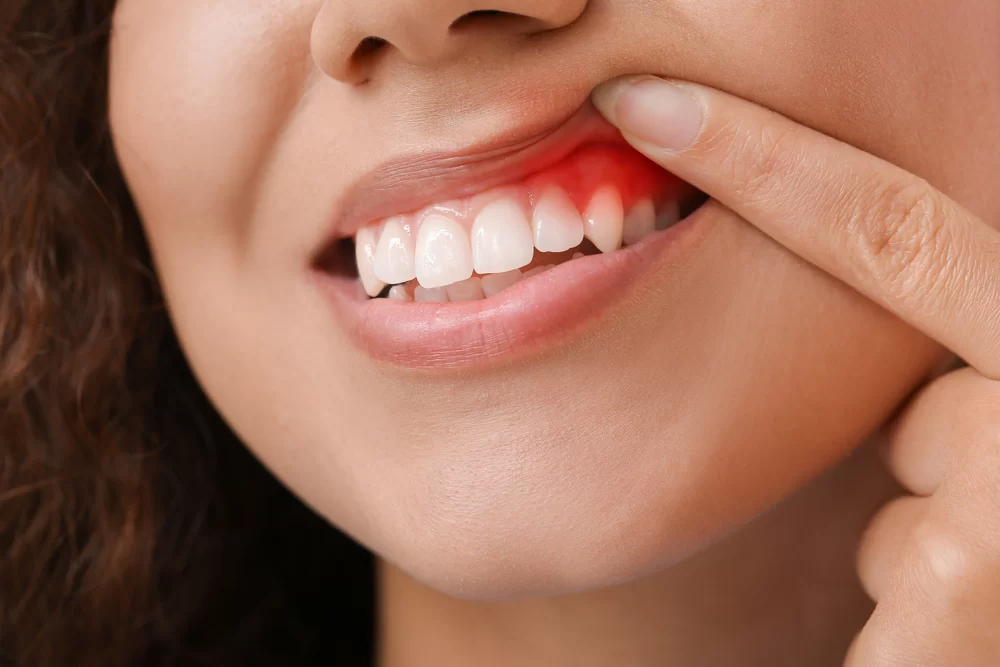
How to Effectively Treat Gum Swelling During a Dental Emergency
Gum swelling can be an alarming experience, especially during a dental emergency. Whether you're dealing with painful swelling after an injury, an infection, or simply an unexpected issue, it’s important to act quickly and correctly. As someone who's experienced this first-hand, I can share helpful insights on how to manage gum swelling and relieve discomfort while you seek professional dental care.
Understanding the Causes of Gum Swelling
Gum swelling can occur for various reasons, and understanding the cause is key to finding the right treatment. In many cases, gum swelling is a result of an infection or irritation caused by bacteria. This could be due to poor oral hygiene, a gum disease like gingivitis or periodontitis, or even a dental abscess. If you've recently had a tooth extraction or dental procedure, the surrounding gum tissue may also swell as part of the healing process.
Another common cause of gum swelling is trauma. For instance, if you've accidentally bitten your gum or had a blow to the mouth, the tissue may become inflamed and sore. An allergic reaction to certain foods or oral care products can also contribute to gum swelling. No matter the cause, it’s important to address the swelling as soon as possible to avoid further complications.
How to Manage Gum Swelling at Home
While waiting for professional dental treatment, there are several effective home remedies you can try to manage gum swelling and reduce discomfort. I’ve personally used some of these methods with success, and they might help you find relief too:
1. Rinse with Salt Water
One of the simplest and most effective remedies for gum swelling is rinsing your mouth with warm salt water. Salt has natural antibacterial properties that can help reduce infection and inflammation. To make a saltwater rinse, simply dissolve half a teaspoon of salt in a glass of warm water, swish it around your mouth for about 30 seconds, and spit it out. Repeat this process several times a day to reduce swelling.
2. Use Cold Compresses
If the swelling is accompanied by pain, applying a cold compress to the outside of your cheek can help numb the area and reduce inflammation. Wrap a few ice cubes in a clean cloth or use a cold pack and hold it against the affected area for 15–20 minutes. This will not only help with swelling but also provide temporary relief from any pain.
3. Apply Over-the-Counter Pain Relief
If the pain from the swollen gums is unbearable, over-the-counter pain relievers such as ibuprofen or acetaminophen can help reduce both pain and inflammation. Always follow the dosage instructions on the package and consult with a healthcare professional if you have any concerns or pre-existing health conditions.
4. Try Natural Anti-Inflammatory Remedies
Certain herbs and oils are known for their anti-inflammatory properties, which can help reduce gum swelling. For example, aloe vera gel can be applied directly to the swollen gum area, or a few drops of tea tree oil diluted in water can be used as a mouthwash. Both of these have natural healing properties that may help soothe irritated gums.
When to Seek Professional Help
While home remedies can provide temporary relief, there are times when you should seek professional dental care. If the swelling persists for more than a few days, becomes severe, or is accompanied by fever, bad breath, or pus, it’s crucial to see a dentist as soon as possible. These could be signs of a more serious infection that requires immediate attention.
In some cases, a dentist may need to drain an abscess, perform a deep cleaning to remove plaque and bacteria, or prescribe antibiotics to treat an infection. If you have an ongoing problem with gum disease or recurring gum swelling, your dentist will work with you to create a treatment plan to improve your oral health and prevent future issues.
My Personal Experience with Gum Swelling
Let me share a quick story from my own experience. A few years ago, I had a minor accident while playing sports that resulted in a swollen gum. It was painful, and I wasn’t sure what to do at first. I decided to try a saltwater rinse, which helped alleviate the discomfort. However, the swelling didn’t go down entirely, so I decided to see a dentist the following day. It turned out I had a small abscess, and I needed antibiotics to clear up the infection. Thanks to prompt treatment, I recovered quickly, and the swelling was completely gone within a week.
This experience taught me how important it is to stay on top of your oral health and not ignore gum issues, even if they seem minor. Always listen to your body and consult a professional when needed. If you’re unsure, seeking advice from a dentist can make all the difference in preventing further complications.
Conclusion: Prevention Is Key
Dealing with gum swelling during a dental emergency can be stressful, but knowing what to do and when to seek help can make the process easier. By practicing good oral hygiene, eating a balanced diet, and avoiding injury to your gums, you can prevent many of the issues that lead to swelling. And remember, when in doubt, always consult a dentist for personalized advice and care.
If you ever find yourself in need of a trusted dental clinic or professional recommendations, feel free to visit us at Dentistry Toothtruth, where we can guide you toward the best solutions for your oral health needs.







 Dr. Christian E. Miller, DDS5.0 (5 review)
Dr. Christian E. Miller, DDS5.0 (5 review) NorthShore Health Centers4.0 (153 review)
NorthShore Health Centers4.0 (153 review) Sumner Smiles Dentistry4.0 (79 review)
Sumner Smiles Dentistry4.0 (79 review) Johnson Ebenezer DDS4.0 (12 review)
Johnson Ebenezer DDS4.0 (12 review) Daniel Jeffrey Cohen, DDS5.0 (117 review)
Daniel Jeffrey Cohen, DDS5.0 (117 review) Brace Busters3.0 (2 review)
Brace Busters3.0 (2 review) The Importance of Oral Health Education During Pregnancy for a Healthy Pregnancy
The Importance of Oral Health Education During Pregnancy for a Healthy Pregnancy Best Tips for Brushing Your Teeth Properly for Healthy Gums: Essential Techniques for Oral Health
Best Tips for Brushing Your Teeth Properly for Healthy Gums: Essential Techniques for Oral Health Why Skipping Dental Checkups Can Lead to Bigger Oral Health Problems
Why Skipping Dental Checkups Can Lead to Bigger Oral Health Problems Advantages of Porcelain Dental Restorations
Advantages of Porcelain Dental Restorations How Can Diabetes Cause Tooth and Gum Problems? Preventing and Managing Oral Health Issues
How Can Diabetes Cause Tooth and Gum Problems? Preventing and Managing Oral Health Issues Healthy Habits for Promoting Good Oral Health and Hygiene: Tips for a Healthy Smile
Healthy Habits for Promoting Good Oral Health and Hygiene: Tips for a Healthy Smile